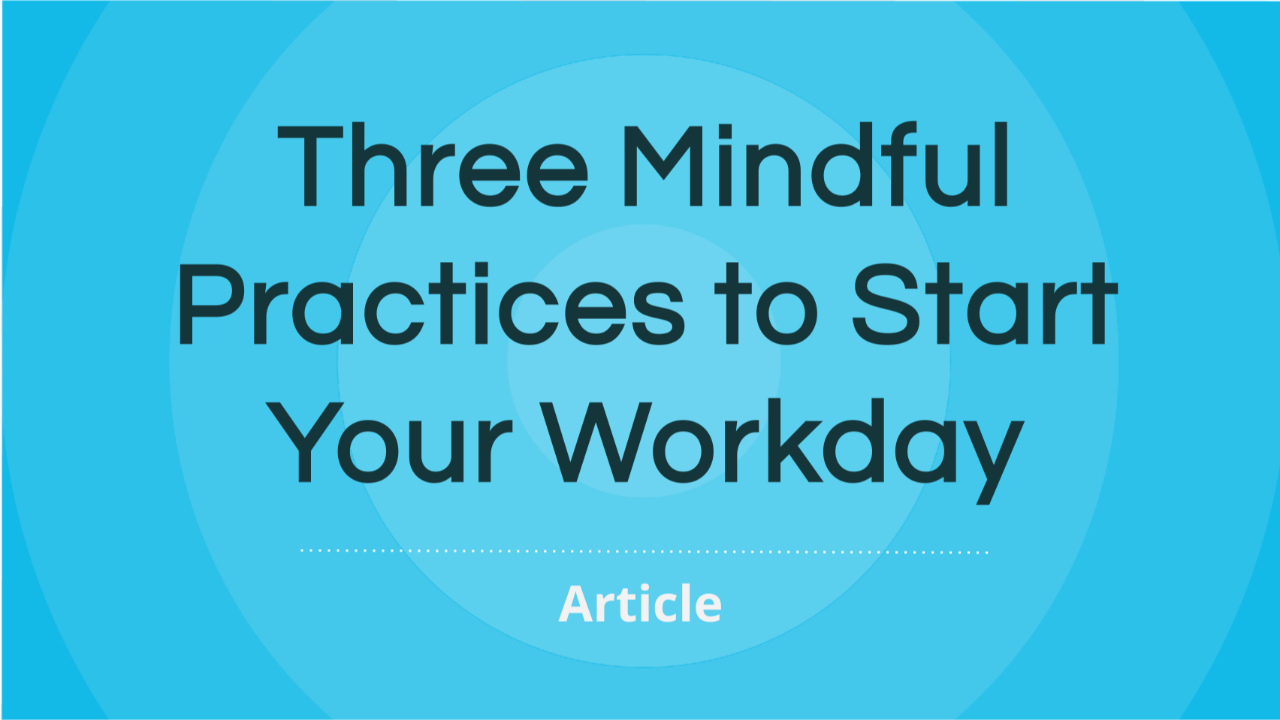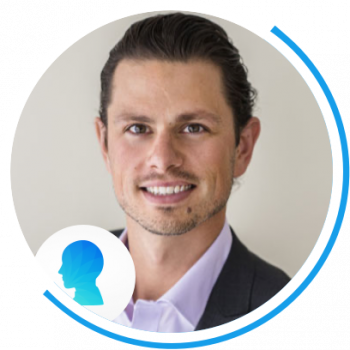Three Mindful Practices to Start Your Workday
May 13, 2022
In the speed and haste of our working lives, we can easily fall into rigid ways of thinking and get caught in habitual “automatic-pilot” modes of perpetually trying to "do” more.
Whether we are being distracted by future plans during meetings, skipping breaks to do tasks we feel are more pressing, or our mind is wandering to other things when a colleague is speaking, not being intentionally present in the moment can lead to unintended consequences that affect business performance, health, and relationships.
This “automatic-pilot” or automatic way of being has been characterized as “mindlessness” by Harvard psychology researcher Dr Ellen Langer.
Mindfulness, on the other hand, as defined by Dr. Langer, is “the simple process of actively noticing new things”. Her research focus is on stimulating the state of mindfulness outside of a meditation practice by actively taking time to pay attention to what’s going on around us. With limited opportunities to meditate at work, establishing the practice of being present during our tasks can bring greater ease, perspective and focus to our day.
Like any new habit, mindfulness takes practice and repetition. To help create a routine to start your workday, we’ve curated three short mindful practices (including guided audio activities) you can do to bring more mindful awareness to your work day.
Intention Setting Practice - Start/End-of-day (1-min)
To build the capacity to focus on what matters most requires setting a clear intention. Rather than specific tasks you wish to complete, an intention is your purpose for the day. This could be focusing on self-care, or maintaining focus, or being supportive to your colleagues. This simple practice can be done at the first moment of waking or when you first enter your workspace.
- Take a moment to pause and take a few breaths will full awareness
- Check in and acknowledge your body sensations (i.e. areas of tightness/relaxation), emotions (i.e. joy, anger) and state of mind (i.e. busy or clear?)
- Ask yourself, “What is my intention for today?”
- At the end of the day, check in with yourself and ask, “Did I live my intention?”
Prioritizing Your Tasks (6-min)
The practice of prioritizing the top three most important tasks of the day helps to limit competing priorities pulling your attention by creating structure around what you focus on and what you choose not to focus on. Try this practice at the start of your workday.
- Take a few breaths with full awareness
- Now, envision your day unfolding in a best case scenario
- Reflect - is there time for deep work, time for technology, time for reflection or self-care?
- Note the top three tasks or items that need to be addressed today
- Identify the primary task or item that you will prioritize
Brief Pause Practice Before a Meeting Begins (1-3min)
Taking a mindful pause teaches us to break the current trajectory of automatic behaviour and reactions in the workday and to check-in with our present state of mind and body. These micro-practices can help us and our teams reset, restore and sustain focus, cope and defuse stress and be more present in tasks and conversations. You can complete the guided audio mindfulness practice below by yourself, or if your team is open to it as a way to start a meeting mindfully. If working with a team and you do not wish to use a guided practice, follow these steps:
- Keep the practice short (1-3mins or 1sec for every meeting minute)
- Make the practice accessible by making the pause optional and inviting people to make themselves comfortable ie. turning off their cameras (if remote)
- Provide options by letting people do whatever would be most helpful i.e. movement, sitting in silence, completing a task, getting a glass of water.

Michael Apollo MHSc RP is the founder of the Mindful Institute. Prior to founding MSGI in 2014, he was the Program Director of Mindfulness at the University of Toronto. He is an educator, licensed mental health clinician and certified facilitator in Mindfulness-Based Stress Reduction and Mindfulness-Based Cognitive Therapy.
References:
Matters of mind: Mindfulness/mindlessness in perspective | ScienceDirect
Ellen Langer: Mindfulness over matter | YouTube
Mindfulness in the Age of Complexity | Harvard Business Review
Join our weekly newsletter for insightful articles and free events
Be the first to learn about upcoming FREE events, receive early bird pricing for courses and stay in touch with weekly newsletters!




